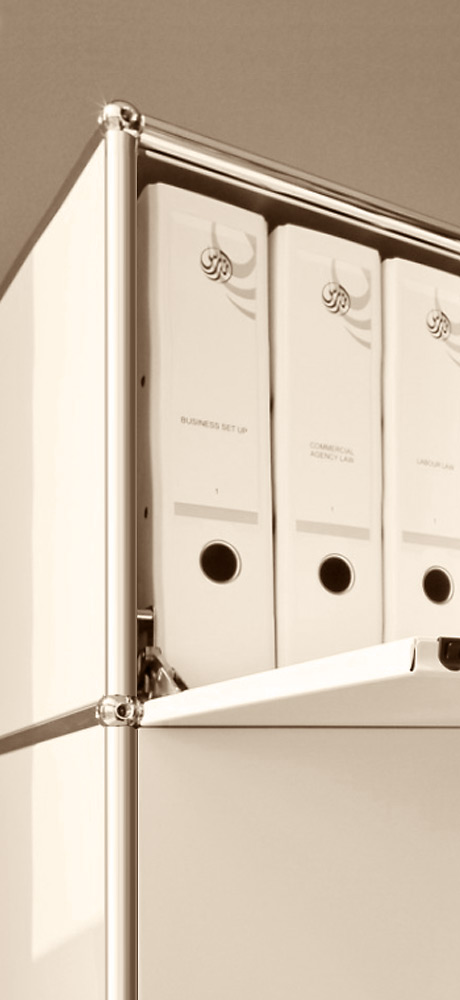Conducting legal proceedings in labour disputes should always be the last resort. It is usually more time and cost effective to negotiate an amicable settlement out of court. However, if the employer and employee are unable to settle their dispute outside the court room, the following aspects have to be considered in relation to legal proceedings in front of the Labour Court in the Emirate of Dubai:
When is the Dubai Labour Court the competent court?
The Labour Court is part of the Dubai Courts. It is responsible for all labour disputes arising out of employment relationships existing either in the territory of Dubai or in any of Dubai's free zones, with the exception of the Dubai International Financial Centre.
What can be the subject of a claim?
In principle, claims in labour-related matters can only be for monetary payment. A typical example would be an employee's claim for damages for what he considers to be an unjustified dismissal by the employer.
The labour law of the United Arab Emirates does not provide for a claim for reinstatement. Further, an action for injunctive relief, such as in case of a breach of a post-contractual non-competition clause, is unlikely to be successful.
What needs to be considered before filing a claim?
No claim for any right due under the labour law will be heard after the lapse of one year from the date the right has arisen. Hence, it must be ensured that court proceedings are initiated in a timely manner.
In case of an employment relationship which exists in the territory of Dubai and is therefore subject to the jurisdiction of the Ministry of Human Resources & Emiratisation ("MoHRE"), a mediation procedure in front of a so-called Twa-Fouq Centre must be conducted first before being able to initiate legal proceedings at court. If the dispute between the employer and the employee cannot be settled with the Twa-Fouq Centre, the mediation body refers the plaintiff to an Al Adheed Centre. The Al Adheed Centre acts as the typing office of the Dubai Courts. It draws up the statement of claim and forwards the necessary documents electronically to the Labour Court.
In most free zones, such as the Dubai Multi Commodities Centre and the Jebel Ali Free Zone, a mediation procedure must also be performed at the relevant free zone authority before legal action can be brought to court.
In which language are court proceedings conducted?
The proceedings in front of the Labour Court in Dubai are conducted in Arabic. This means that all documents the parties wish to submit must be either in Arabic or translated into Arabic. Translations have to be prepared by a translator who is accredited by the Ministry of Justice.
The Labour Court usually conducts the case without having the parties giving statements during a hearing. Each party merely submits its pleadings in writing, including documentary evidence, such as employment contracts, correspondence between the parties and bank statements. Witnesses are only heard under exceptional circumstances. Hence, before initiating court proceedings, it is essential to ensure that the plaintiff can sufficiently prove his claims by means of documents.
Is a lawyer required in court?
At the court of first instance, legal representation is not mandatory. If a party is not proficient in Arabic and Arabic legal terminology, it is advisable to appoint a lawyer. Only Emirati lawyers and some lawyers of other Arab nationalities have right of audience in court.
What are the court fees?
If the employer files a lawsuit, he has to pay court fees amounting to 5% of the total amount claimed, however, not more than AED 20,000.
The employee in turn does not have to pay any court fees up to a claim value of AED 100,000 pursuant to Dubai Law No. 21 of 2015. If the amount in dispute exceeds AED 100,000, the employee has to pay the same court fees as an employer, i.e. 5% of the amount in dispute, with a limit of AED 20,000.
It is at the sole discretion of the court whether, and to what extent, the losing defendant is ordered to reimburse any court fees to the winning claimant.
Are lawyer's fees reimbursed?
In general, each party must bear its own lawyer's fees. The court awards the winning party only a small amount between AED 2,000 and AED 5,000 at best.
How long does it take until a judgment is issued?
The length of the legal proceedings depends on various factors, including the complexity of the case, the availability of the parties and the current workload of the Labour Court.
According to the annual report of the Dubai Courts for the year 2017, Labour Court proceedings took an average of 89.2 days from the date of filing the complaint to the first instance judgment. The average waiting time between the filing of the complaint and the first hearing amounted to 22 days.
Efforts are currently being made to further speed up proceedings in labour law matters. In November 2018, for example, the so-called Remote Litigation Service was introduced. It enables parties to a labour court dispute with a claim value of less than AED 20,000 to attend hearings by means of electronic communication. Such cases will be heard by a single judge who can pass a judgment within 24 hours.
How can a judgment be challenged?
Appeals are only admissible if the amount in dispute exceeds AED 20,000. For disputes up to this value, the judgment of the court of first instance is final and cannot be challenged in a higher court.
If the judgment allows for an appeal, the parties have 30 days from the pronouncement of the judgment to lodge the appeal. The employee is exempted from paying any court fees in the appeal stage provided the claim value does not exceed AED 100,000. Under certain conditions, the judgment of the Court of Appeal can be challenged in front of the Court of Cassation.
How is a judgment of the Labour Court enforced?
In case the judgment is final and the losing party does not comply with the ruling, the winning party must apply for the execution of the judgment before the Execution Court.
The Execution Court will ask the losing party to pay the awarded amount as per the judgment within 15 days.
The fees for the execution proceedings amount to 2% of the amount to be enforced, with the minimum cost being AED 200 and the maximum cost being AED 5,000. The employee is again exempted from the fees up to a claim value of AED 100,000.
What enforcement measures must the judgment debtor fear?
If the debtor does not pay after the Execution Court has requested him to do so, his bank accounts can be seized, among other things.
Ministerial Resolution No. 797 of 2014 also authorises the MoHRE to block the employer's file with the MoHRE until full payment has been made by the employer. This means, for example, that it is no longer possible for the employer to apply for new work permits. If the employer holds shares in other companies, the MoHRE can also arrange for the files of these companies to be blocked.
In serious cases, arrest warrants and exit bans against the managing director of the employer can also be issued.

